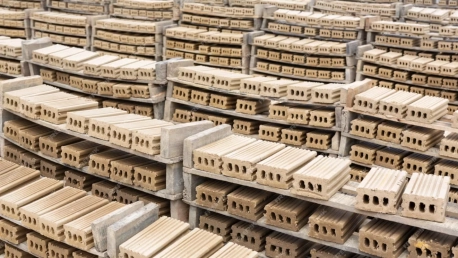The Indian Institute of Science’s Center for Sustainable Technologies (CST) is making waves in the construction sector, offering a progressive solution to the dual challenges of sand scarcity and climate change. With the world’s natural sand reserves dwindling dangerously due to over-extraction, and the construction industry being a significant contributor to carbon emissions, CST’s research is not just timely but vital. Their innovative approach showcases the potential of sustainable practices to remedy ecological concerns. By focusing on alternative materials and processes, the CST at the Indian Institute of Science is guiding the industry toward a more responsible and environmentally friendly future. Their work exemplifies the essential role of scientific innovation in mitigating environmental degradation and promotes a new paradigm in construction that aligns with the pressing need for sustainability in our rapidly changing world.
Addressing Environmental Concerns with Innovative Materials
Transforming Construction Waste and Soil with CO2 Sequestration
In India, the rapid growth in infrastructure has led to an increased production of construction and demolition (C&D) waste, which often ends up in landfills, posing environmental challenges. Innovative researchers have turned this problem into an opportunity by employing CO2 sequestration techniques to transform C&D waste and unexcavated soil into stronger construction materials. Their breakthrough research demonstrates that by treating C&D waste with CO2, the compressive strength of the mortar can be enhanced by up to 22%. Additionally, they have found a way to increase the strength of indigenous clayey soil, usually an obstacle in construction, by a noteworthy 30% after CO2 treatment. These remarkable improvements not only result in superior building materials but also offer a proactive solution to CO2 emissions, as the process effectively traps and stores the greenhouse gas within the structural fabric itself, thereby tackling two major concerns in one stroke.
Advancement in 3D-Printable Construction Materials
Advancing beyond simple waste transformation, researchers have crafted 3D-printable construction materials surpassing traditional cement-sand composites in performance. These pioneering materials amalgamate industrial residues such as fly ash and slag, elevating excellence in extrusion and structural integrity. As the global call for building supplies heightens and the urgency for sustainable solutions intensifies, this innovation is timely. The incorporation of these byproducts, often deemed waste, into construction, showcases a pivotal shift toward environmental conservation. The creation of these advanced materials not only exemplifies a stride in industrial innovation but also underscores a profound dedication to preserving the planet. This breakthrough signals a dual triumph; it converts what would be pollutants into high-quality building resources while fortifying our commitment to ecological responsibility.
Implementing Sustainable Practices in Construction
Collaborating with Industry for Practical Implementation
The Center for Sustainable Technologies is paving the way for greener building methods by collaborating with construction industry giants. Their groundbreaking research into sustainable materials and their reaction to various industrial gases goes beyond academic pursuit. It’s a vital step toward tangible changes in construction sites worldwide. By implementing these innovative materials in everyday building practices, the center aims to inspire a significant downturn in the construction industry’s carbon emissions. These efforts align with international goals to curb climate change by transforming theoretical discoveries into actionable, industry-wide environmental benefits. Such advancements promise to put these environmental solutions at the forefront of construction strategies, propelling the sector toward a more sustainable future.
Influencing National Construction Material Standards
The importance of sustainable construction practices has never been more pronounced, and with this in mind, the researchers’ contributions extend beyond the laboratory. As part of a national committee, they play a crucial role in revising standards for construction materials, pushing sustainability to the forefront of regulatory frameworks. This involvement ensures that the innovations stemming from their research are not just benchmarks for excellent science but also form the bedrock of industry standards. By shaping policy and influencing the direction of national construction protocols, the team is ensuring that the fight against climate change is integrated into the fabric of India’s construction industry, paving the way for a future where development and sustainability go hand in hand.









